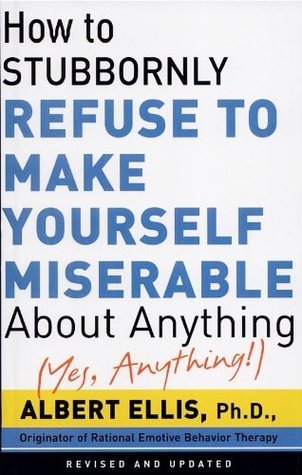What do you think?
Rate this book


Given the stress and strain of modern day-to-day living, the last things we need are the inhibiting, crippling problems we bring upon ourselves by the way we think and feel about the world and the people around us. The simple, logical method outlined in this book is the soundest approach yet devised to acquire true mental health and happiness.
Dr. Albert Ellis is the founder of the Institute for Rational-Emotive Therapy, which now has branches throughout the United States and around the world. He is the author of more than forty-five books, including A New Guide to Rational Living (with Robert A. Harper, Ph.D.), Sex Without Guilt and Sex and the Liberated Man.
244 pages, Kindle Edition
First published June 1, 2000